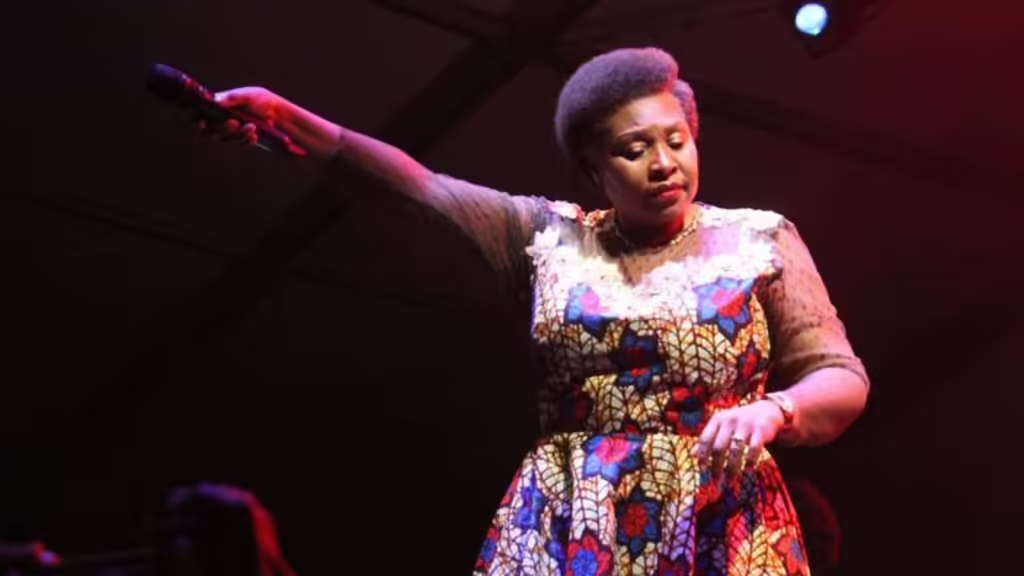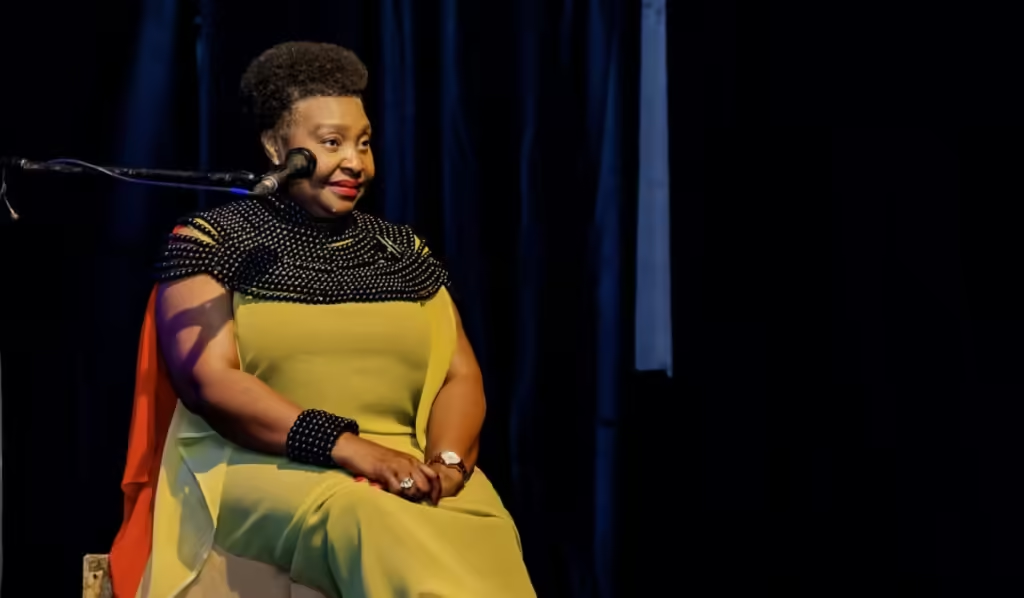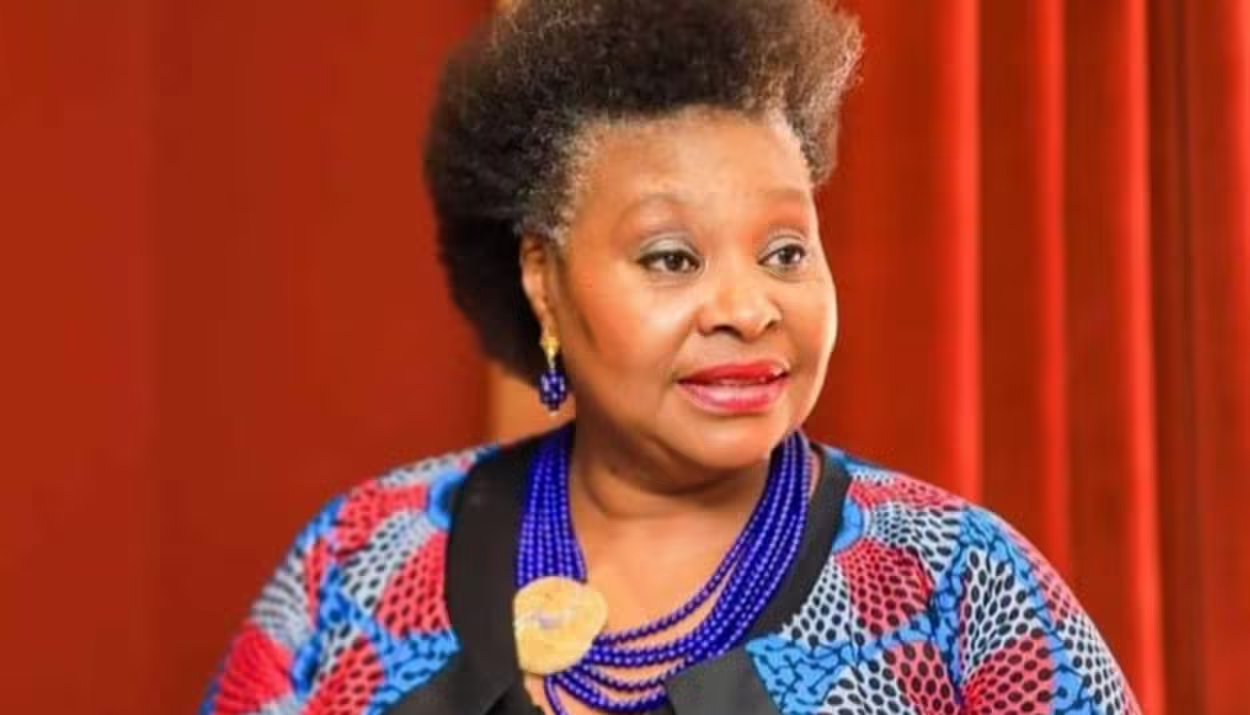When Yvonne Chaka Chaka steps on stage, the audience still roars like it’s the 1980s. The South African singer—nicknamed the Princess of Africa—can draw thousands across the continent with the opening bars of “Umqombothi,” the beer-drinking anthem that became a pan-African hit. But beneath the nostalgia lies a very modern story: Chaka Chaka has built one of the most durable business portfolios in Africa’s creative industry.
In four decades, she has transformed from a Soweto teenager-turned-pop-star into a multi-layered entrepreneur, policy influencer, and philanthropist. Today, she controls a promotions company, a music label, a foundation with international partnerships, and diversified real assets. She has sat on corporate boards, learned from failed ventures, and become a vice-president of CISAC—the Paris-based confederation that sets rules for author royalties worldwide.
In a continent where most musicians are one bad contract or one cancelled tour away from financial precarity, Chaka Chaka’s story is not only about survival. It is about converting applause into equity—and teaching a generation of African artists that business is the real stage.
Soweto beginnings and the price of fame
Born Yvonne Ntombizodwa Machaka in Dobsonville, Soweto, in 1965, Chaka Chaka grew up in a household defined by scarcity. Her father died while she was still a child; her mother, a domestic worker, supported three daughters on wages that barely covered food and school fees. Those early struggles shaped the grit that defined her later career.
By 19, Chaka Chaka had been discovered in Johannesburg and recorded “I’m in Love With a DJ.” It became an instant hit, followed by “I’m Burning Up,” “Thank You Mr. DJ,” and the pan-African classic “Umqombothi.” By the late 1980s, she was a household name across the continent, touring from Lagos to Lusaka.
Yet behind the stage lights were exploitative contracts. Record labels controlled masters; managers took disproportionate cuts; royalties were opaque.
Her big break came in 1981 when Phil Hollis of Dephon Records discovered her talent. Within two years, her debut single “I’m in Love with a DJ” topped South African charts. By the late 1980s, she was a continental star, performing alongside legends like Miriam Makeba and Hugh Masekela.
Unlike many contemporaries who lost control of their royalties to exploitative record labels, Chaka Chaka took notes early. “I knew music was a business, not just art. I made sure I owned my work,” she once said in an interview.
That mismatch drove her back into education. She completed a diploma in Adult Education and Local Government Management at the University of South Africa (UNISA) and a qualification in Speech and Drama at Trinity College, London. For many performers, fame is the peak. For Chaka Chaka, it was a launching pad to something else.

Building Chaka Chaka Inc.
Chaka Chaka Promotions
At the heart of her empire is Chaka Chaka Promotions, a company she directs that handles bookings, tours, event logistics, and corporate gigs. Rather than depend on external promoters, Chaka Chaka internalised the function, capturing more of the margin. For corporate partners, dealing with a structured company instead of an individual artist also de-risked engagement.
This move mirrored what savvy American artists like Jay-Z and Madonna did: turn management into a corporate function, where the artist is the CEO rather than the employee.
Label and production company
Chaka Chaka also founded her own label and production company, giving her control of recording and publishing. That mattered when her songs were licensed abroad. The most famous case: Hotel Rwanda (2004) opened with “Umqombothi,” a licensing deal that underscored how global sync rights can extend the earning life of a song.
Today, with streaming reshaping consumption, control over metadata, licensing, and royalties is even more critical. Her vice-presidency at CISAC is not just symbolic; it ensures she is part of the room where digital rights frameworks are being debated.
Byandlani Limousine Services
Not every venture worked. In the 1990s, she and her husband, medical doctor Mandlalele “Tiny” Mhinga, launched Byandlani Limousine Services, one of South Africa’s first Black-owned limo businesses. It was bold but ill-timed: luxury ground transport was capital-intensive, requiring fleet upkeep, insurance, and marketing. The business collapsed.
Instead of retreating, Chaka Chaka treated the failure as “tuition.” One property acquired during the venture was repurposed into a rental asset in Berea, Johannesburg—turning a liability into a steady earner. For many African artists, failed ventures are career-ending. For Chaka Chaka, they were lessons in portfolio management.
Brand endorsements and award properties
In 2001, she became the face of First National Bank (FNB), then South Africa’s second-largest bank. This was more than a celebrity gig. At the time, banks were aggressively targeting Black middle-class consumers in post-apartheid South Africa, and Chaka Chaka’s credibility as a pan-African icon offered both trust and aspiration.
Over time, she expanded into event IP. One initiative—the Backings Vocalists and Session Musicians Awards—recognised the unsung workers of the music industry. For sponsors, this offered a ready-made corporate social responsibility platform. For Chaka Chaka, it generated recurring revenue and reinforced her position as a patron of the ecosystem.
Philanthropy as enterprise infrastructure
If most African celebrities treat philanthropy as charity appearances, Chaka Chaka industrialised hers. In 2006, she launched the Princess of Africa Foundation, which runs programs in health, education, and women’s empowerment.
The foundation works with UNICEF, the Global Fund, GAVI, and the Roll Back Malaria Partnership. Chaka Chaka has been appointed as an ambassador for all of them, and in 2012, the World Economic Forum gave her its Crystal Award for humanitarian work.
For her, philanthropy is not separate from business—it’s infrastructure. The foundation professionalises her advocacy, raises grant funding, employs staff, and builds government and corporate relationships. For companies seeking African partners, a credible foundation de-risks collaboration. In effect, her philanthropy extends her balance sheet.
Counting the money
Unlike global pop icons, African artists rarely have Forbes-audited net worths. Estimates of Chaka Chaka’s fortune vary from $2 million to $10 million, but the real insight lies in the architecture of her income streams.
- Performance and touring fees remain significant, with concerts and corporate gigs routed through her promotions company.
- Music rights—masters, publishing, and sync deals—are long-tail assets, paying royalties decades after first release.
- Brand partnerships, such as FNB, bring lump-sum contracts and association with major corporates.
- Events IP like her awards shows create sponsorship opportunities.
- Real estate adds stability to otherwise cyclical performance income.
- The foundation, while not personal income, enhances her negotiating power and ensures sustained visibility with institutions.
The model is diversified, defensive, and durable—rare in Africa’s music industry.

What others did differently
Chaka Chaka’s path looks even more deliberate when compared with her peers.
- Miriam Makeba, South Africa’s most famous export, never had full commercial control of her catalogue, and much of her financial security came from international touring and patronage.
- Hugh Masekela, another legend, built a sustainable career but not a corporate infrastructure around his work.
- By contrast, younger stars like Akon and Black Coffee have followed strategies closer to Chaka Chaka’s—diversifying into record labels, energy projects, or hospitality.
The difference is that Chaka Chaka built her empire decades earlier, in a harsher business environment, without the benefit of today’s globalised streaming platforms.
Policy, power, and protection
Chaka Chaka’s vice-presidency at CISAC is perhaps the most underappreciated part of her portfolio. CISAC represents 4 million authors worldwide, negotiating with governments and platforms to secure fair compensation in the digital era.
For an African artist to sit in that room is significant. Streaming services like Spotify and Apple Music have accelerated music access across Africa, but royalty payments remain inconsistent. Chaka Chaka’s influence means she is not only protecting her catalogue but shaping the rules for younger African musicians.
It also reflects a larger business philosophy: build moats not just through ownership, but through influence.
Lessons for African artist-entrepreneurs
The Princess of Africa is now an industry matriarch, but her business strategy remains relevant to emerging talent.
- Study while you shine. Formal education gave her the tools to understand contracts and negotiate with corporations.
- Incorporate early. Her promotions company turned her from a contractor to an enterprise.
- Treat failure as tuition. The limo company’s collapse became a property play.
- Make philanthropy strategic. The foundation turned goodwill into infrastructure.
- Sit at the policy table. CISAC ensures her income and that of others is protected.
The durability of the brand
Forty years after her first hit, Yvonne Chaka Chaka still performs, still commands brand campaigns, and still runs a functioning business portfolio. Her empire is not measured in billions, but in durability:
- Time in market: Four decades of relevance.
- Diversity of income: From royalties to property.
- Institutional hooks: CISAC, UNICEF, Global Fund.
- Reinvestment into ecosystem: Awards for backing vocalists, mentoring young artists.
In Africa’s creative economy—where few stars last more than a decade—durability is the truest measure of wealth.
The Princess as CEO
For most Africans, Yvonne Chaka Chaka will always be the singer of “Umqombothi,” the soundtrack to a thousand weddings. But her deeper legacy may lie in the corporate model she built: one that fuses artistry with ownership, philanthropy with infrastructure, and fame with institutional influence.
She has shown that an African artist can do more than chase fleeting hits—they can build an empire that outlasts applause.
The Princess of Africa turned her songs into assets, her failures into lessons, and her fame into equity. In a continent still struggling to monetise its creativity, that might be the most valuable business case study of all.






